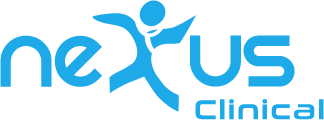
The Advantages of Safe Controlled Substance Prescribing with Integrated Prescription Drug Monitoring
The Advantages of Safe Controlled Substance Prescribing with Integrated Prescription Drug Monitoring

As a healthcare provider prescribing controlled substances carries a heavy responsibility. DEA and CDC have been enforcing many measures to ensure that misuse of controlled substances has been minimized. Most of the requirements can now easily be fulfilled due to the widespread use of EHR software.
This started with enforcing EPCS (Electronic prescription of controlled substances) instead of paper prescriptions for controlled substances. With EPCS providers can use patient electronic medical records to enter prescriptions directly, confirm the patient’s identity and ensure that the correct medication is being prescribed. EPCS is an excellent example of how technology can significantly improve your practice and the healthcare industry’s efficiency.
Prescription Safety with EPCS:
- Enrollment for EPCS now requires stricter Identity proofing than identity proofing for regular prescriptions.
- The prescriber is required to use 2FA (2-factor authentication) for every prescription of controlled substances.
- The prescribing software that allows controlled substances is required to undergo a biennial audit to verify all current EPCS software requirements are being handled by software.
Prescription Drug Monitoring Program:
In addition to EPCS requirements, CDC has mandated PDMP (Prescription Drug Monitoring Program) to keep drug overdose of controlled substances in check. PDMP is used to identify patients that are at risk of controlled drug overdose or addiction.
Initially, Prescription Drug Monitoring Program (PDMP) was done manually by logging into your state’s PDMP portal. This process was tedious, time-consuming, and only added an extra step to already hectic medical practices. However, Automated PDMP is now available with most of the EPCS software which saves your time and resources.
Key Benefits of Automated PDMP:
- A more convenient way to access PDMP, which integrated PDMP provides, can encourage more providers to utilize it. This increase in provider usage will result in improved accuracy and timeliness of data in PDMP, making it more useful to the healthcare industry.
- EPCS with integrated PDMP enables quicker delivery of prescriptions to the patient, enhancing the convenience and quality of care received. This process is entirely paperless, and it allows for patient history tracking of the medication regimen, which is more accurate and efficient.
- Automated PDMP makes the process easy to understand for prescribers and staff users.
Conclusion:
In summary, EPCS and automated PDMP are vital components of the healthcare industry that have revolutionized the process of prescribing controlled substances. They provide benefits such as reducing the risk of drug abuse, fraud, and diversion, increasing the accuracy/timeliness of data, improving the quality of care, and raising the efficiency/effectiveness of practices while also freeing up time to spend on other clinical matters. Integrating these two techniques with your electronic medical record is a worthwhile investment that will pay off with positive dividends in the long run.
How can we help you?
Nexus EHR supports Electronic Prescribing of Controlled Substances (EPCS) through our partner NewCrop. Some of the key benefits of using our EHR for prescribing controlled
substances include:
- Seamless workflow for the prescriptions and EPCS.
- No significant changes in workflow for regular prescriptions vs. Controlled substances
- Save your frequently prescribed medication with sig to prescribe them efficiently
- Easy mobile app-based authentication to save time while prescribing.
- Automated PDMP option available
Many medical specialties including Pain Management, Neurology, Orthopedics, etc. that are required to prescribe Controlled Substances can avail of this feature.





